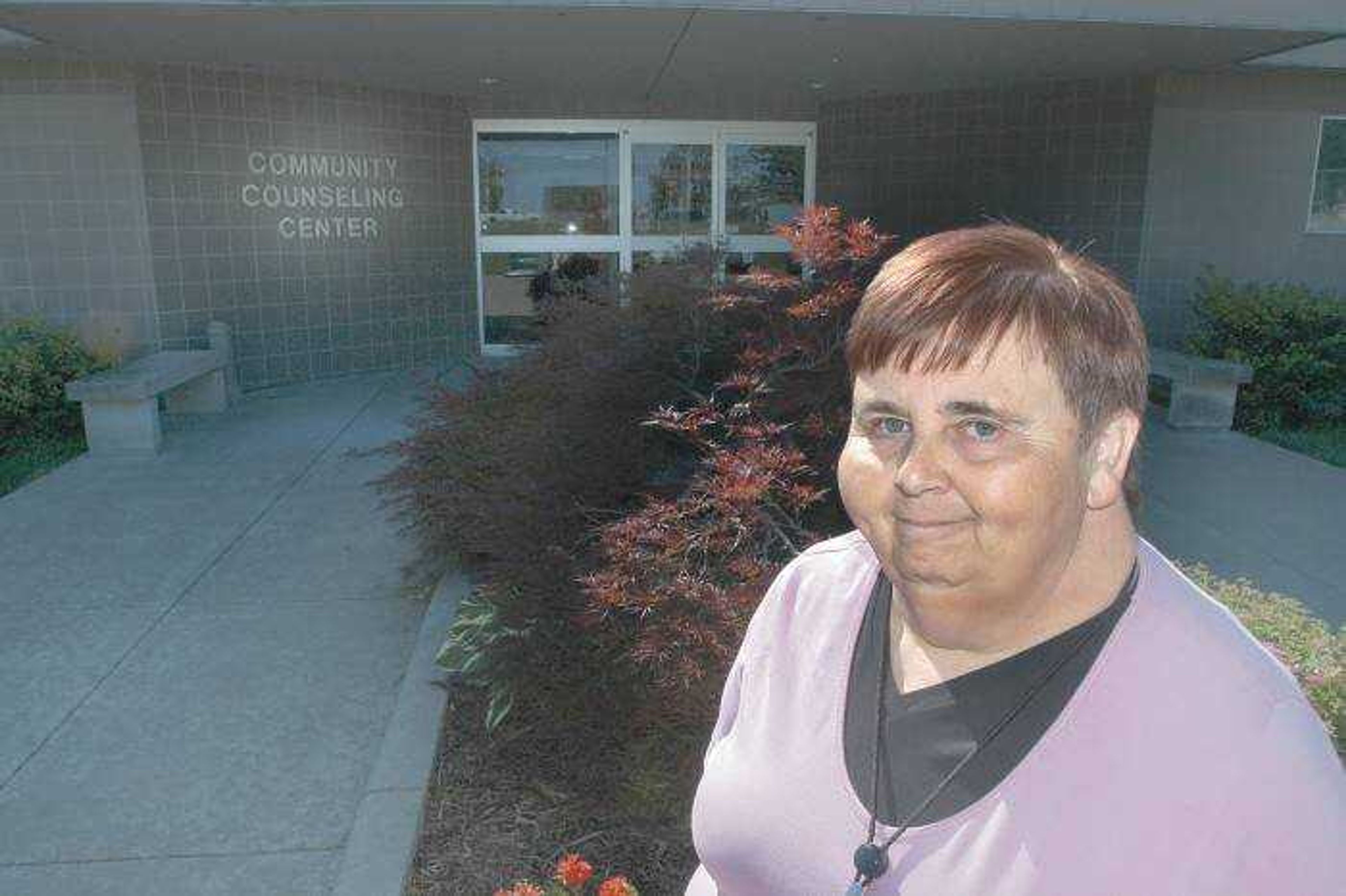Warming up to people in need
When life gets to be too much, people call a crisis hot line. But when life gets to be just overwhelming without boiling over, there's still help available -- from a "warm line." The Community Counseling Center staffs its warm line through a grant from the Missouri Department of Mental Health. ...
When life gets to be too much, people call a crisis hot line. But when life gets to be just overwhelming without boiling over, there's still help available -- from a "warm line."
The Community Counseling Center staffs its warm line through a grant from the Missouri Department of Mental Health. Most of the calls come from people at the center, but a growing number of calls come from people who are not associated with the center, but who might be lonely or frustrated -- who just need someone to talk to.
So many calls were coming to the center's 24-hour hotline that some of its clients (known there as consumers), with help from the center, put together the warm line and operated it on a volunteer basis. In 1998 the center organized some of its consumers into an advisory board that chose a coordinator to set up policies for the warm line, freeing up the hotline for major crises and allowing the trained staff to lend a sympathetic ear or give a few gentle suggestions to others who were just having trouble coping, said Judy Johnson, clinical director.
When the Community Counseling Center staff learned about the availability of grant money, they applied for funding. The Department of Mental Health continues to fund the warm line. The center receives income from private insurance companies, Medicare and Medicaid, along with revenue from a mill tax from three of the five counties the center serves.
As many as 15 consumers have worked the warm line, but now five consumers staff it and seven more are undergoing background checks for criminal and abusive behavior before being put to work. Marilyn Rastl is among those who helped put the warm line together. She coordinates recruiting and training while Shirley Sides coordinates the administrative work, Johnson said.
Rastl said people who call the warm line mostly want someone who will listen.
"I try to ask open-ended questions," she said. "I ask them to tell me more. Most of the time I may ask one question and at that point, it all kind of flows.
"A lot of times we're the only person that person talks to that day."
If the caller is one of the center's consumers, the person answering the warm line might remind him to check his critical intervention plan, which all clients have.
"Some times we remind them about their relaxation techniques, things to do to calm themselves down," Johnson said. "We remind them of things they can do to help themselves."
Sometimes they pray with the callers. They also direct them to other helping sources if necessary. Mostly, they just listen.
"I'd say listening is 98 percent of it," Rastl said.
Callers from the general public may need more than just a sympathetic ear. Rastl said it's the children who call the warm line who tug at her heart, like the little girl who called from the closet of a motel room where she was hiding.
"She had been abused by a parent and wanted to know what to do," he said.
Or the young man whose roommate had committed suicide. Rastl said he had found the warm line while looking in the phone book for prayer lines.
"He talked to me all evening," she said. "I did everything I could to encourage him to seek help for himself if he continued to feel bad. Certainly I reassured him that every feeling he had was normal and natural and he had a right to those feelings. And I bawled through the whole call."
Her faith gets her through those tough calls, Rastl said. She knows God will take care of her while she's helping take care of the callers.
The people who answer the warm line are trained in stress management so they can handle those difficult calls. They have at their fingertips numbers to call for people whose utilities have been cut off. Some callers need transportation. Others just haven't seen their children in a long time and are lonely. The Christmas holidays can be a busy time for the warm line, but even more so is spring. Any change of season, Johnson said, can be stressful. Rainy or gloomy weather can also bring out the need to call the warm line.
All calls are confidential, Johnson and Rastl stressed. Warm line personnel will ask callers for their name, address and phone number, but they don't insist on it and often talk to people not knowing their names.
For some of the consumers, working the warm line is a way to get work experience and reintegrate themselves into the community, Johnson said.
Community Counseling Center is a private not-for-profit agency that was established when Saint Francis Medical Center discontinued its mental health center. It serves about 600 consumers in the counties of Cape Girardeau, Bollinger, Madison, Perry and Ste. Genevieve. In addition to the warm line and the 24-hour crisis hotline, the center offers counseling and therapy for children, youth, adults and seniors; crisis intervention services, psychiatric services, an independent living program, in-home services, children's alternative services, and education services among others. The center is accredited by the Commission on Accreditation of Rehabilitation facilities, and is certified by the state.
Connect with the Southeast Missourian Newsroom:
For corrections to this story or other insights for the editor, click here. To submit a letter to the editor, click here. To learn about the Southeast Missourian’s AI Policy, click here.









